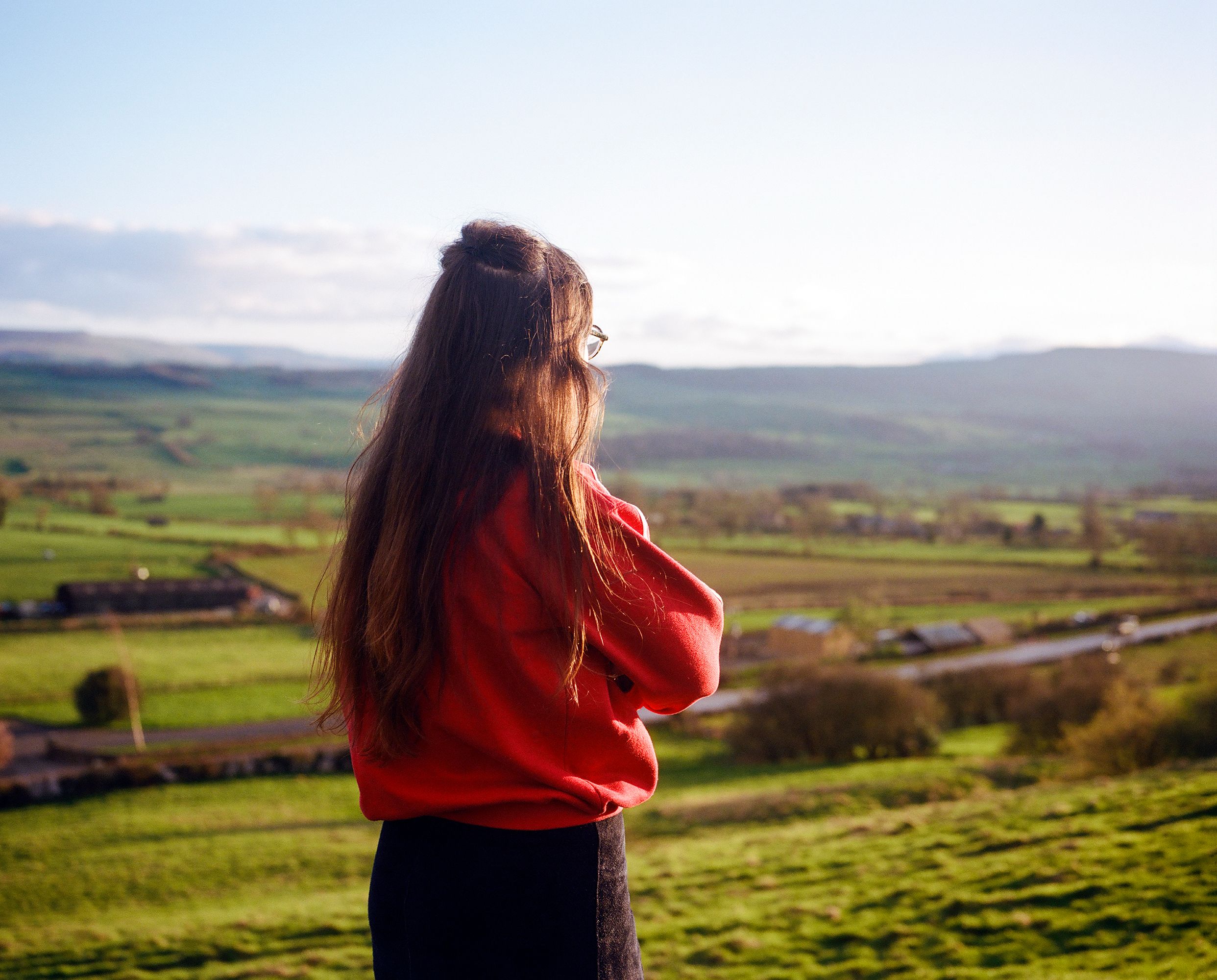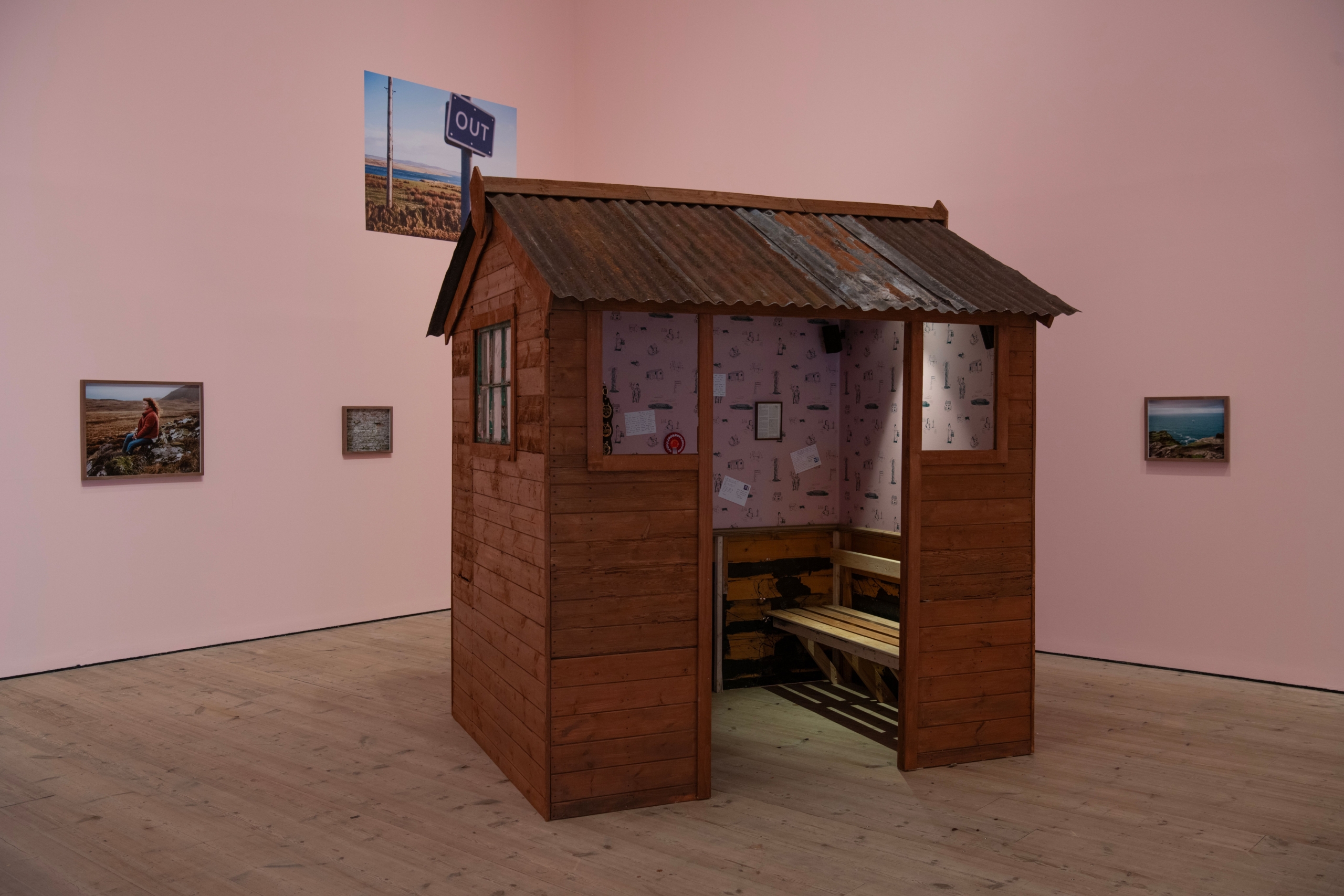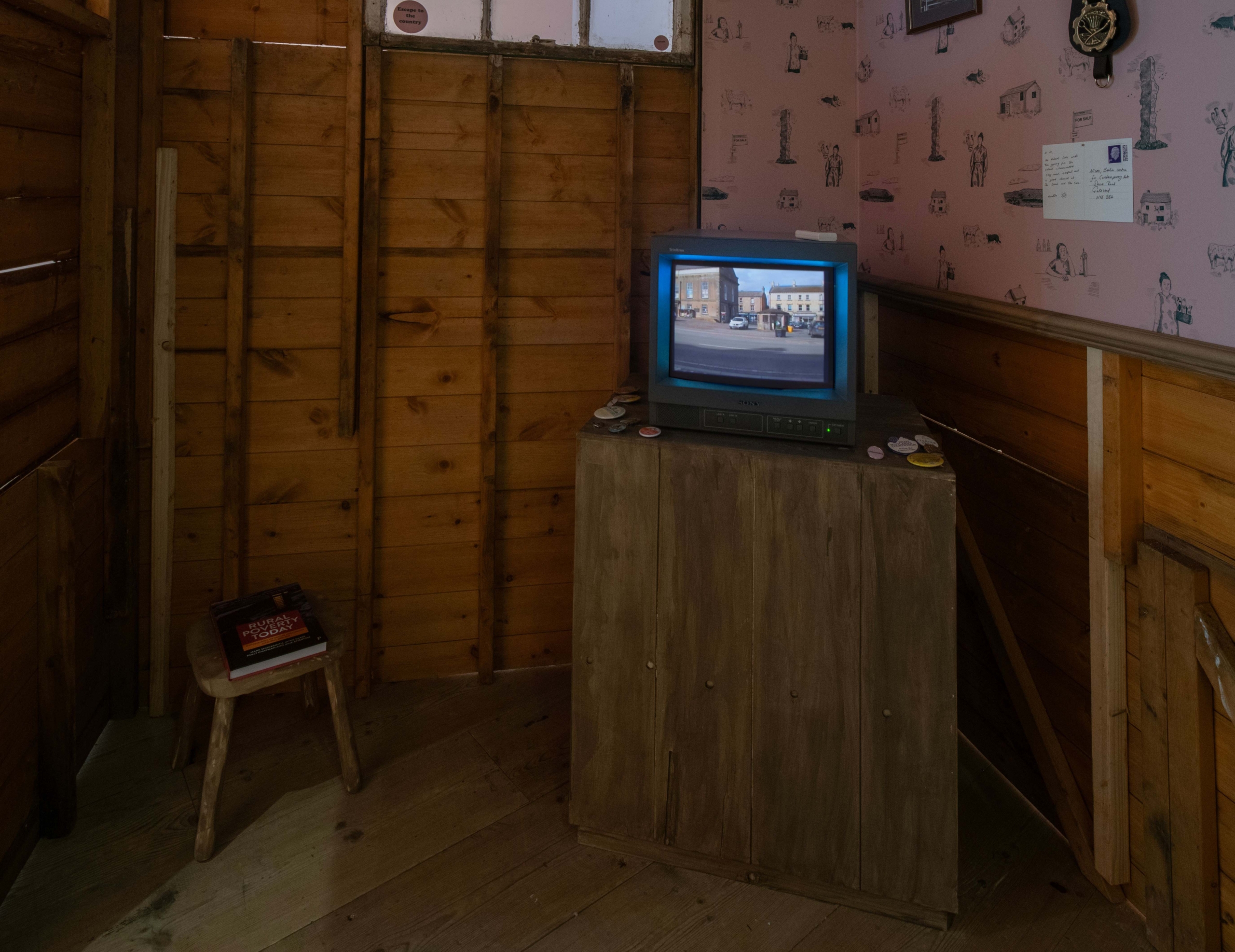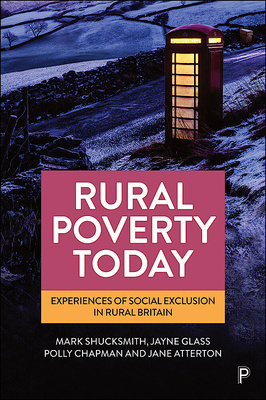When visual artist Joanne Coates discovered she had won the Baltic Vasseur Award 2024, she was in the middle of reading Rural Poverty Today: Experiences of Social Exclusion in Rural Britain by Mark Shucksmith, Jayne Glass, Polly Chapman and Jane Atterton.
The book became a key influence in the resulting exhibition of Joanne’s work, ‘The Middle of Somewhere’, displayed at the Baltic Centre for Contemporary Art, Gateshead between May and November 2024. Using photography, film, audio and art installation, Joanne articulated the experiences of young women living in rural communities, based on first-hand interviews and testimonials. Through her art, Joanne explored the impact that climate change, the cost-of-living crisis and wealth disparities are having on rural people in low-income communities.
Hidden stories
“Joanne is a brilliant photographer, well able to take on a topic like rural poverty, which is so hard to photograph because it is hidden,” says Mark Shucksmith, co-author of Rural Poverty Today.
“Her content is fascinating. Joanne shows the ambivalence of young women towards the land. Her work shows their love of the land, how they are embedded in it, but at the same time, how they feel drawn to, or pushed to leave it and get out.”
Research is a key part of Joanne’s creative practice, helping her to root the personal and emotive within an evidenced-based landscape. She says:
“Mark’s research was included within my practice well before ‘The Middle of Somewhere’ exhibition and before I’d ever met him. His work is incredibly relatable. It resonated directly with me – as somebody from a rural area.”
From personal to universal
One of the ways Joanne appreciated Rural Poverty Today was as a personal bias check for her work:
“When I talk to the women I photograph I can connect because I have had similar feelings about back home. But I need to ensure I’m not just leaning into that too much.”
“Art comes from and through a personal lens but it must speak to universal truths. Rural Poverty Today helped me to anchor the universality of the lived experience I had felt, that the people I was interviewing felt because our experiences were evidenced through the research presented in the book on a larger scale.”
The book also played a more physical role before and during the exhibition.
“I’d show the young women the books [including Rural Poverty Today] that I was referencing, and I’d say, ‘This is my main source of research’. It helped them feel seen. All four women didn’t know that this sort of research was out there, that there were people, academics and policy makers taking this level of interest in their lives. Seeing the book had a personal impact on them.”

Academic book as art installation
A physical copy of the book was also featured in the exhibition itself. As Mark says,
“Alongside the photographs at the exhibition, there was a video that Jo had put together, which was very, very powerful. It had interviews with people in rural areas which aligned with the book’s themes – they could have been interviews included in the book.”
“The video played on a screen in an installation of a rural bus stop, and there, right beside the TV screen, in the little shed in the middle of the exhibition, was a copy of our book. That was powerful for me.”


Mark recounts the interviews he conducted for the book:
“At the beginning of the interview, there would be these long silences. You would gradually win their confidence and their trust – and then they would give you real insights into something which you didn’t know before.”
“I’d go away at the end of the interview, and at the end of the day, feeling so angry, and feeling such a duty to represent what these people had told me at great cost.”
Duty
Adhering to that sense of duty, Mark and his co-authors promoted their research in a number of orthodox ways. They created online reports and policy briefs, have been interviewed by mainstream media (The Guardian, BBC R4 Farming Today, ITV News) and published on the subject in relevant specific interest publications and journals. They have presented their work at conferences, run webinars and engaged with MPs in England and Scotland on all sides of the political spectrum.
The sense of duty to tell a story impactfully is equally critical to Joanne’s work:
“The last two images of Aisling and Ros show them looking out towards their landscapes, but we only see the back of their heads. It’s an art historical reference – in painting, we would see it as looking out to the idyll. But that’s not their story. They are looking out and thinking ‘we can’t live here’.”
Running throughout both Rural Poverty Today and ‘The Middle of Somewhere’ is an undeniable interconnection between the personal and the political. The academic and the art both crisscross the lines that are so often artificially drawn by their respective disciplines. From this, both book and art reveal how much more expansive and more impactful the stories they have to tell can be when the boundaries between the two are consciously acknowledged and explored: the personal providing richness to the academic, the factual providing deeper validation to the emotive.
Rebecca Megson-Smith is a writer and writing coach, and founder of Ridley Writes. Mark Shucksmith OBE is Emeritus Professor at Newcastle University, and an Associate Member of the Centre for Rural Economy. Joanne Coates: Award-winning artist (Election Artist 2024 for UK Parliament, Jerwood / Photoworks Winner 2021, The Baltic Vasseur Award 2024, Females in Focus | Shutterstock Winner 2021, Portrait of Britain Winner 2020) and founder of Roova Arts (Nature-friendly farming, access to green spaces and arts)
You can catch Joanne’s work at MIMA | Towards New Worlds: Middlesbrough, until February 2025.
 Rural Poverty Today by Mark Shucksmith, Jayne Glass, Polly Chapman and Jane Atterton is available on Bristol University Press here for 80.00.
Rural Poverty Today by Mark Shucksmith, Jayne Glass, Polly Chapman and Jane Atterton is available on Bristol University Press here for 80.00.
Bristol University Press/Policy Press newsletter subscribers receive a 25% discount – sign up here.
Follow Transforming Society so we can let you know when new articles publish.
The views and opinions expressed on this blog site are solely those of the original blog post authors and other contributors. These views and opinions do not necessarily represent those of the Bristol University Press and/or any/all contributors to this site.
Image credit: Joanne Coates


